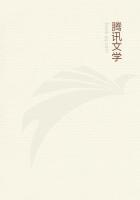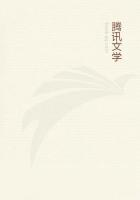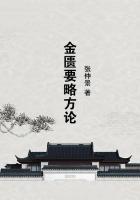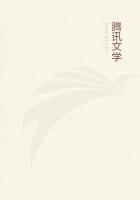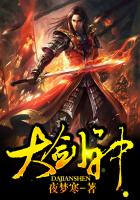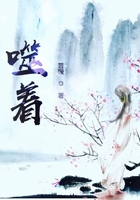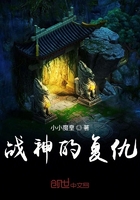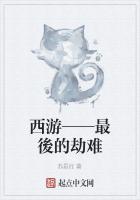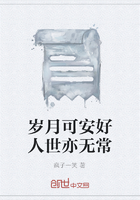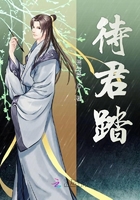Domini's acquaintance with Androvsky had not progressed as easily and pleasantly as her intercourse with Count Anteoni. She recognised that he was what is called a "difficult man." Now and then, as if under the prompting influence of some secret and violent emotion, he spoke with apparent naturalness, spoke perhaps out of his heart. Each time he did so she noticed that there was something of either doubt or amazement in what he said. She gathered that he was slow to rely, quick to mistrust. She gathered, too, that very many things surprised him, and felt sure that he hid nearly all of them from her, and would--had not his own will sometimes betrayed him--have hidden all. His reserve was as intense as everything about him. There was a fierceness in it that revealed its existence. He always conveyed to her a feeling of strength, physical and mental. Yet he always conveyed, too, a feeling of uneasiness. To a woman of Domini's temperament uneasiness usually implies a public or secret weakness. In Androvsky's she seemed to be aware of passion, as if it were one to dash obstacles aside, to break through doors of iron, to rush out into the open. And then--what then?
To tremble at the world before him? At what he had done? She did not know. But she did know that even in his uneasiness there seemed to be fibre, muscle, sinew, nerve--all which goes to make strength, swiftness.
Speech was singularly difficult to him. Silence seemed to be natural, not irksome. After a few words he fell into it and remained in it. And he was less self-conscious in silence than in speech. He seemed, she fancied, to feel himself safer, more a man when he was not speaking.
To him the use of words was surely like a yielding.
He had a peculiar faculty of ****** his presence felt when he was silent, as if directly he ceased from speaking the flame in him was fanned and leaped up at the outside world beyond its bars.
She did not know whether he was a gentleman or not.
If anyone had asked her, before she came to Beni-Mora, whether it would be possible for her to take four solitary rides with a man, to meet him--if only for a few minutes--every day of ten days, to sit opposite to him, and not far from him, at meals during the same space of time, and to be unable to say to herself whether he was or was not a gentleman by birth and education--feeling set aside--she would have answered without hesitation that it would be utterly impossible. Yet so it was. She could not decide. She could not place him. She could not imagine what his parentage, what his youth, his manhood had been.
She could not fancy him in any environment--save that golden light, that blue radiance, in which she had first consciously and fully met him face to face. She could not hear him in converse with any set of men or women, or invent, in her mind, what he might be likely to say to them. She could not conceive him bound by any ties of home, or family, mother, sister, wife, child. When she looked at him, thought about him, he presented himself to her alone, like a thing in the air.
Yet he was more male than other men, breathed humanity--of some kind-- as fire breathes heat.
The child there was in him almost confused her, made her wonder whether long contact with the world had tarnished her own original simplicity. But she only saw the child in him now and then, and she fancied that it, too, he was anxious to conceal.
This man had certainly a power to rouse feeling in others. She knew it by her own experience. By turns he had made her feel motherly, protecting, curious, constrained, passionate, energetic, timid--yes, almost timid and shy. No other human being had ever, even at moments, thus got the better of her natural audacity, lack of self- consciousness, and inherent, almost boyish, boldness. Nor was she aware what it was in him which sometimes made her uncertain of herself.
She wondered. But he often woke up wonder in her.
Despite their rides, their moments of intercourse in the hotel, on the verandah, she scarcely felt more intimate with him than she had at first. Sometimes indeed she thought that she felt less so, that the moment when the train ran out of the tunnel into the blue country was the moment in which they had been nearest to each other since they trod the verges of each other's lives.
She had never definitely said to herself: "Do I like him or dislike him?"
Now, as she sat with Count Anteoni watching the noon, the half-drowsy, half-imaginative expression had gone out of her face. She looked rather rigid, rather formidable.
Androvsky and Count Anteoni had never met. The Count had seen Androvsky in the distance from his garden more than once, but Androvsky had not seen him. The meeting that was about to take place was due to Domini. She had spoken to Androvsky on several occasions of the romantic beauty of this desert garden.
"It is like a garden of the /Arabian Nights/," she had said.
He did not look enlightened, and she was moved to ask him abruptly whether he had ever read the famous book. He had not. A doubt came to her whether he had ever even heard of it. She mentioned the fact of Count Anteoni's having made the garden, and spoke of him, sketching lightly his whimsicality, his affection for the Arabs, his love of solitude, and of African life. She also mentioned that he was by birth a Roman.
"But scarcely of the black world I should imagine," she added.
Androvsky said nothing.
"You should go and see the garden," she continued. "Count Anteoni allows visitors to explore it."
"I am sure it must be very beautiful, Madame," he replied, rather coldly, she thought.
He did not say that he would go.
As the garden won upon her, as its enchanted mystery, the airy wonder of its shadowy places, the glory of its trembling golden vistas, the restfulness of its green defiles, the strange, almost unearthly peace that reigned within it embalmed her spirit, as she learned not only to marvel at it, to be entranced by it, but to feel at home in it and love it, she was conscious of a persistent desire that Androvsky should know it too.

